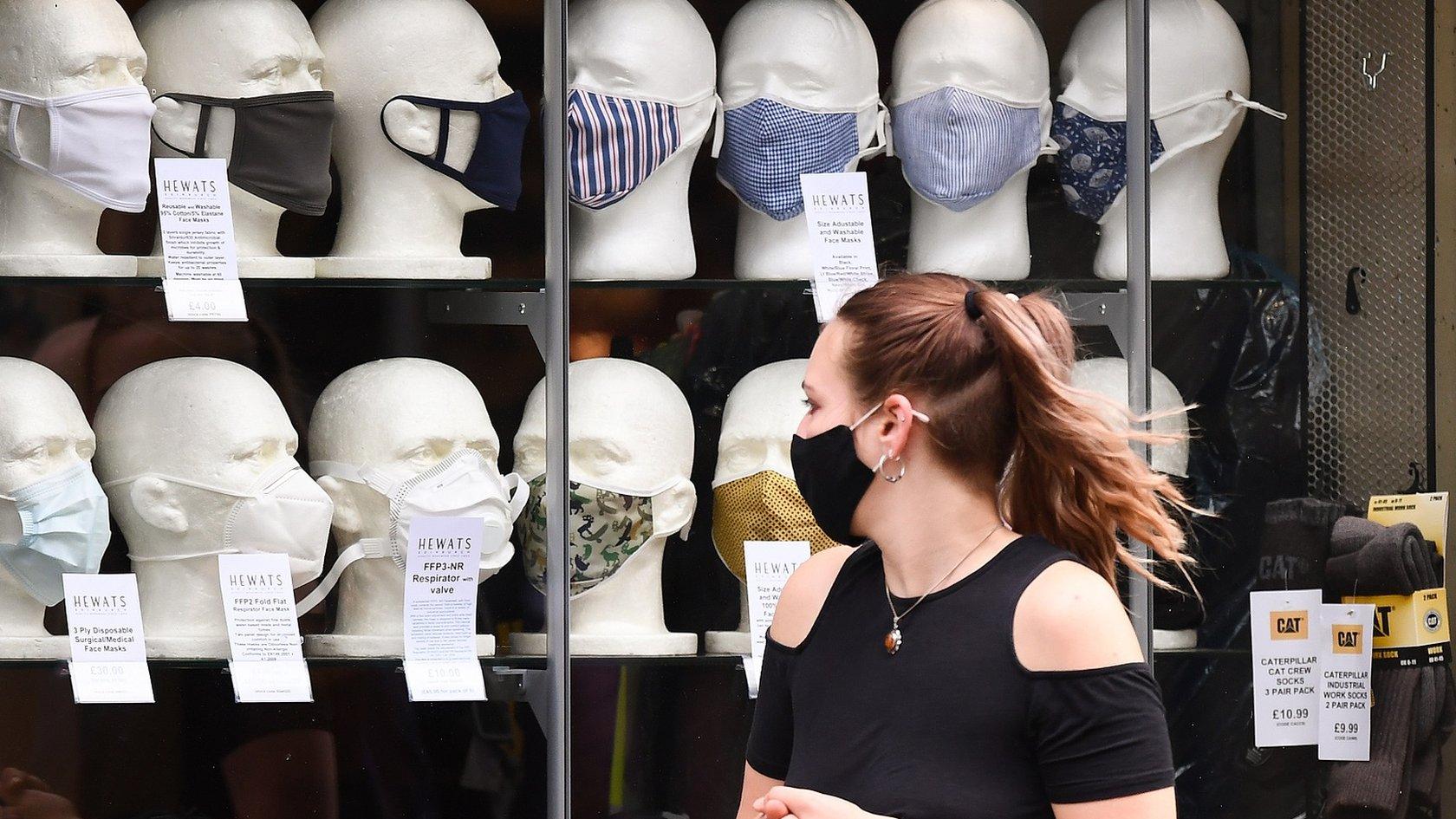Covid in Scotland: Curbs of six months 'more realistic position'
- Published
- comments
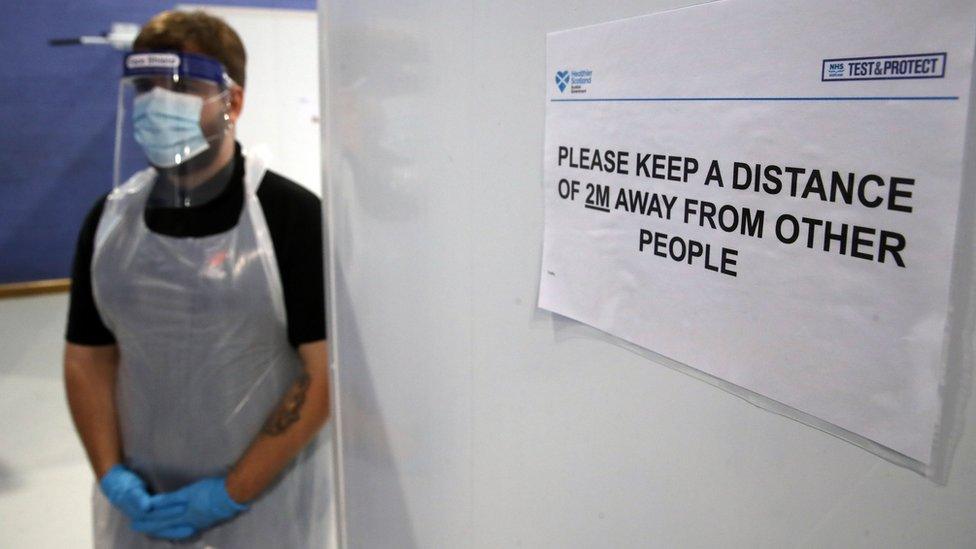
Scotland's health secretary said reports that tighter Covid restrictions could last six months are "more realistic" than curbs lasting weeks.
Jeane Freeman also warned "difficult decisions" would need to be taken to combat the spread of coronavirus.
She said national restrictions might be necessary to prevent rising cases turning into hospital admissions.
The UK's chief scientific adviser has warned by mid-October Britain could end up with 50,000 cases per day.
Sir Patrick Vallance added that this would be expected to lead to about 200 deaths a day by the middle of November.
Ms Freeman said that in Scotland family gatherings and parties remained the main catalyst for the spread of the virus.
And she told BBC Good Morning Scotland that ministers "completely understand" the concerns of the hospitality sector, amid speculation curfews may be introduced.
A report in The Times, external reports that Britain faces a further six months of "very difficult" lockdown restrictions.
Ms Freeman was asked specifically about such a timeframe - that would include Christmas and last until spring - as opposed to one that would last three weeks.
She replied: "It is a more realistic position, but we have not yet made all of our decisions about the additional measures that we put in place and how long we believe they will be there for."
On Sunday, 245 new cases of Covid-19 were reported in Scotland, which amounts to 5.4% of those tested.
No new deaths were reported and there were 63 people in hospital with recently confirmed Covid-19. Nine are in intensive care.
By comparison, 350 new cases were reported in Scotland on Saturday - the highest daily increase since May.


Why are the scientists worried?
You can understand people's frustration - cases may be rising but mostly in the young and hospital admissions are still very low. Yet scientists are worried. They see what has happened in other parts of Europe and they judge there is a critical window of opportunity to act or risk losing control of the virus once again.
Remember, the NHS is stretched at the best of times and it is still playing catch up on the day-to-day work that had to be put on hold earlier this year. It is also only able to work at a limited capacity.
So the concern from medics I speak to is that any significant increase in coronavirus patients would stop routine work again. Yes, the NHS will cope with Covid, as it did before, but what will be the consequences for things like cancer care, rehabilitation or already long waits for hip and knee replacements?

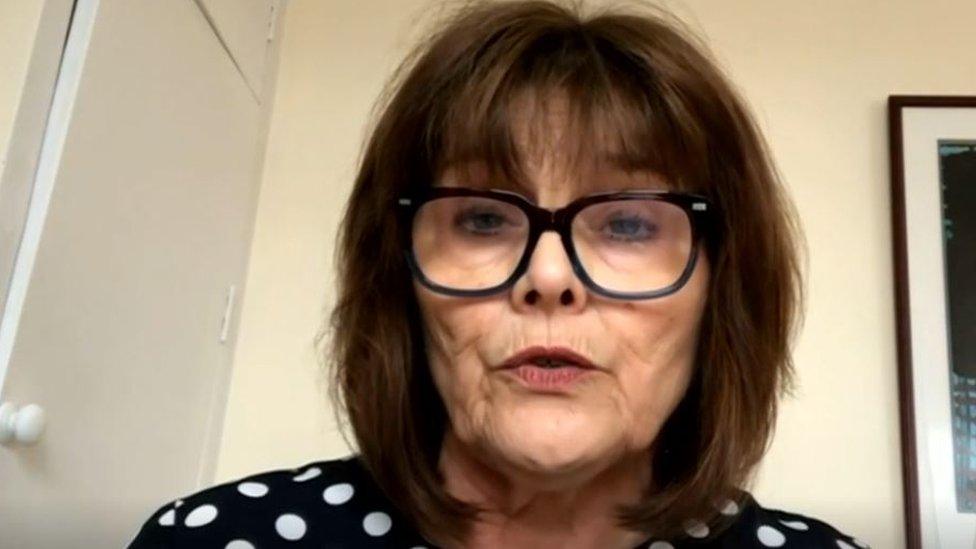
Jeane Freeman says all options in regard to further restrictions remain on the table
Ms Freeman said household-to-household transmission remains the "principal area of transmission" in the clusters and outbreaks which are currently being managed.
The minister added that it was "difficult to be completely accurate" about how effective the "rule of six" had been at this stage as it would have to be in place for at least two weeks.
On the prospects of a curfew for bars and restaurants, which could see them close at 21:00 or 22:00, she said: "There is no clear set of decisions that has no impact on other areas.
"It is always a balance between what will have the most effect in reducing the number of cases, and therefore protecting people from what is a very vicious and serious virus, against practicality and the other harms that might be done, such as economic harms."
'Still struggling'
On Sunday Ms Freeman told the BBC's Politics Scotland there was evidence to show the steep rise in cases had been "blunted" following additional measures in some local authorities in the west - but said there was still "real concern".
When asked whether the Scottish government would consider imposing similar fines in place in England, the health secretary said the issue needed to be examined "the other way round".
She added that she wanted to avoid "penalising" those on "fragile, zero-hour contracts" and low wages.
Scottish Labour leader Richard Leonard has called on the Scottish government to "learn lessons" from the March lockdown and safeguard "anxious" workers.
Scottish Conservatives leader Douglas Ross, who has previously taken a stand against Boris Johnson by resigning over the actions of Dominic Cummings, said he wanted to see the Scottish and UK governments work together on issues such as the furlough scheme.
He added that several industries were "still struggling" and he would be speaking to the chancellor to see what could be done for those industries.

BACK TO SCHOOL: Can a school insist on a Covid test?
LOCKDOWN EASING: What changes next - and when?

- Published21 September 2020
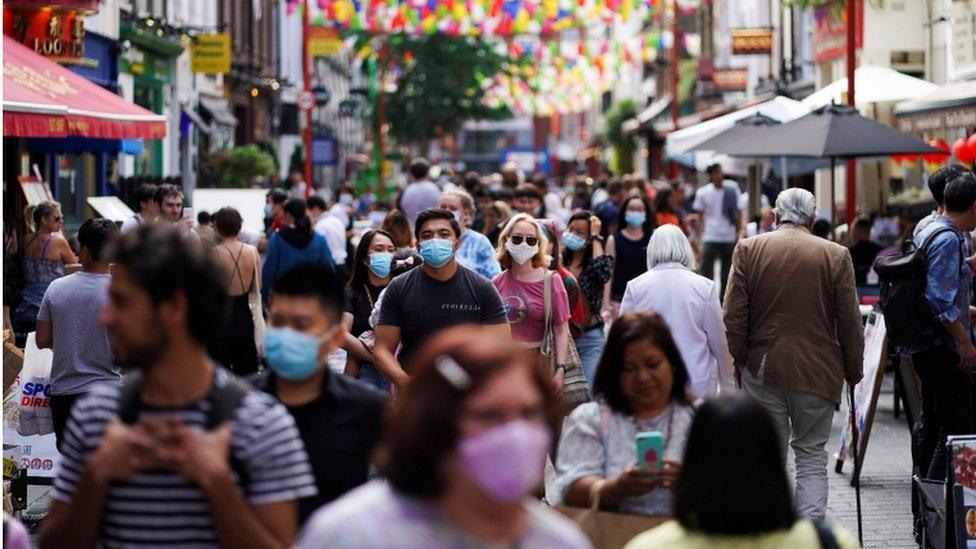
- Published19 September 2020
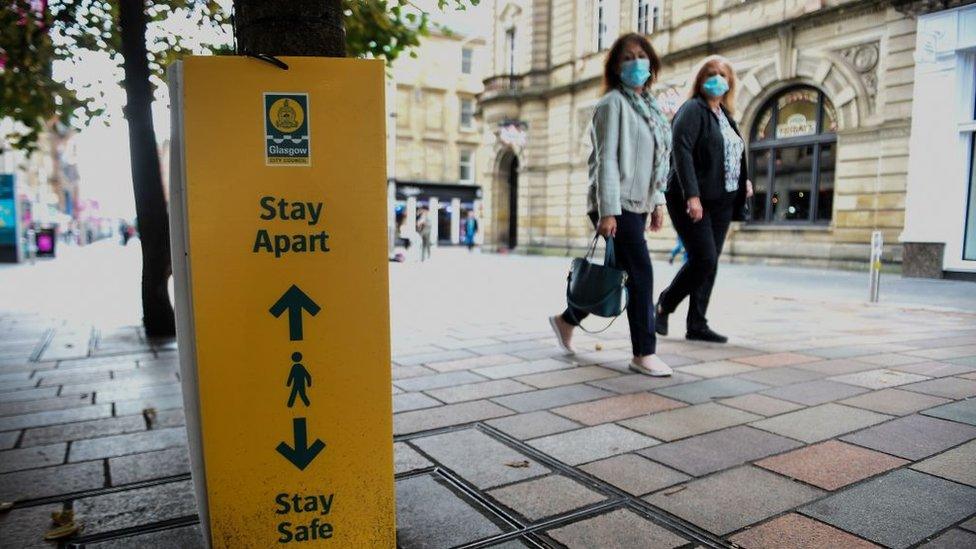
- Published18 September 2020
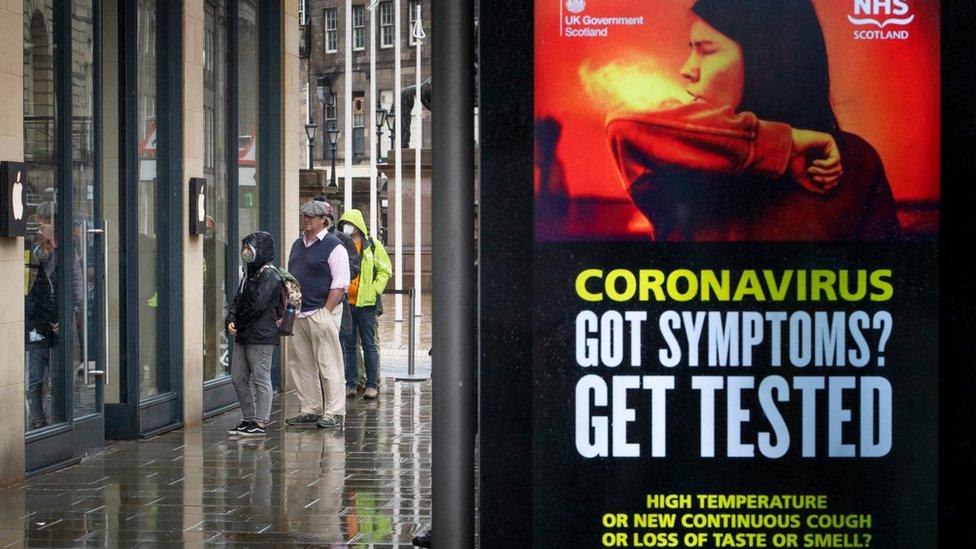
- Published21 September 2020
